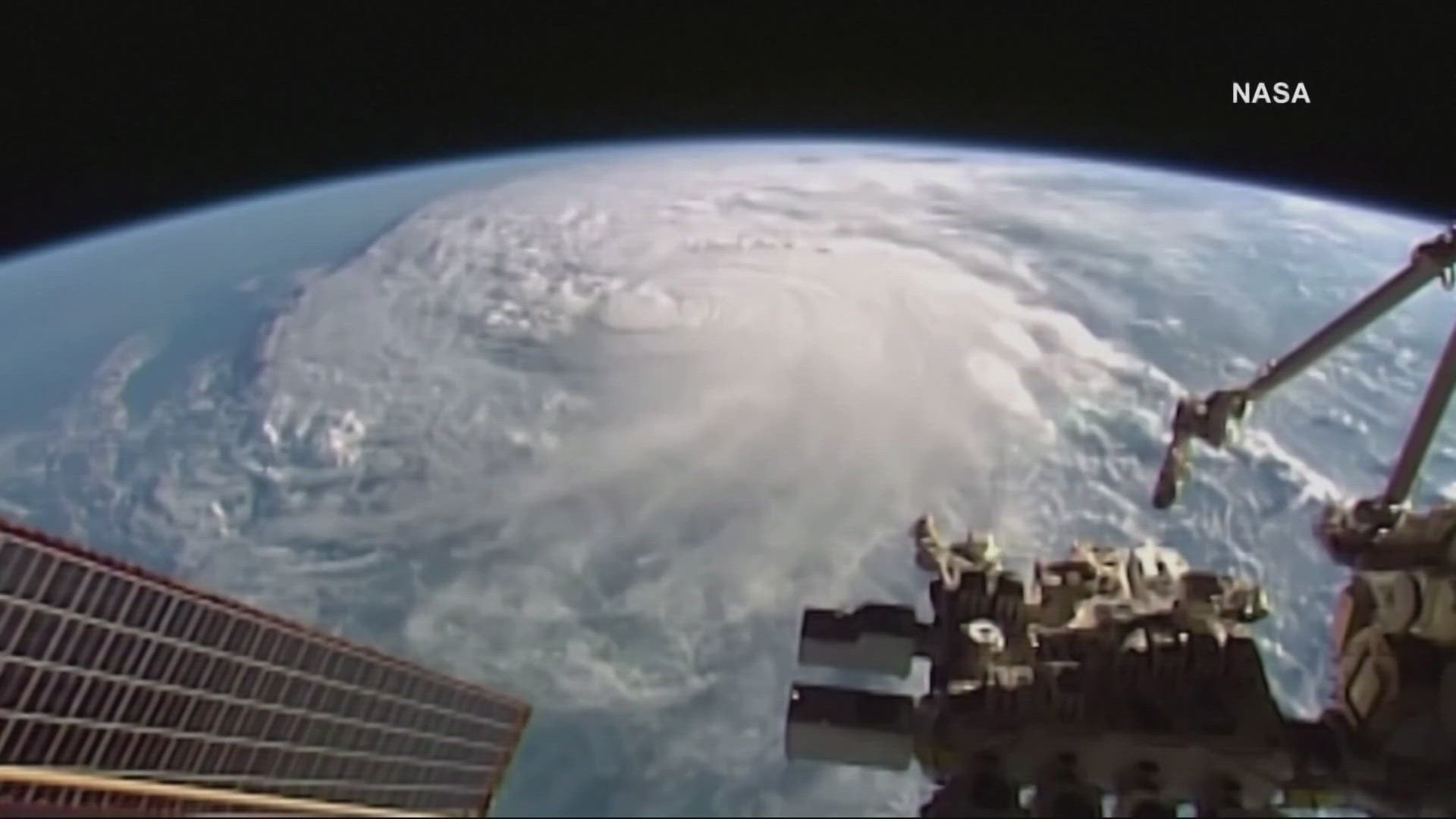CORVALLIS, Ore. — Like it or not climate change is happening all around us, from glaciers melting to wildfires burning hotter and longer than ever before. It was most recently and dramatically demonstrated in the U.S. southeast, starting out with Hurricane Helene, which damaged places that were never impact by a hurricane before, like in Ashville, North Carolina.
Researchers at Oregon State University recently released an annual report suggesting that we're entering an even more unpredictable phase of the global climate crisis, which could include stronger hurricanes and more intense heat waves.
“We could have never predicted that a hurricane was going to hit a mountainous region that we thought was a climate refuge,” said Dr. Jillian Gregg, co-author of the OSU climate study and professor in the school's sustainability double degree program.
Hurricane Milton gained strength in the Gulf of Mexico, where it started as a category one hurricane. Ten hours later, it turned into a category five storm.
“It’s the ocean temperatures that are evaporating into the air, that drives hurricane intensity — and then we see these really intense hurricanes,” said Gregg.
She believes the big reason for the extremes that we’re seeing can be tied back to our oceans.
“It’s only tenths of a degree, but it’s the consistency and that fact they are consistently getting warmer month after month,” Gregg said about how oceans are warming across the globe.
It’s those extremes that are sending global temperatures to heights we’ve never seen before, and that has led to extreme heat waves.
“Billions of people worldwide this year faced extreme heat. Since last year, there have been heat waves across the world that have killed over a thousand people in Asia,” Gregg said.
The report also showed that three of the hottest days ever recorded came in July this year. You might remember that Portland saw its hottest July ever, with a daily average of nearly 90 degrees.

